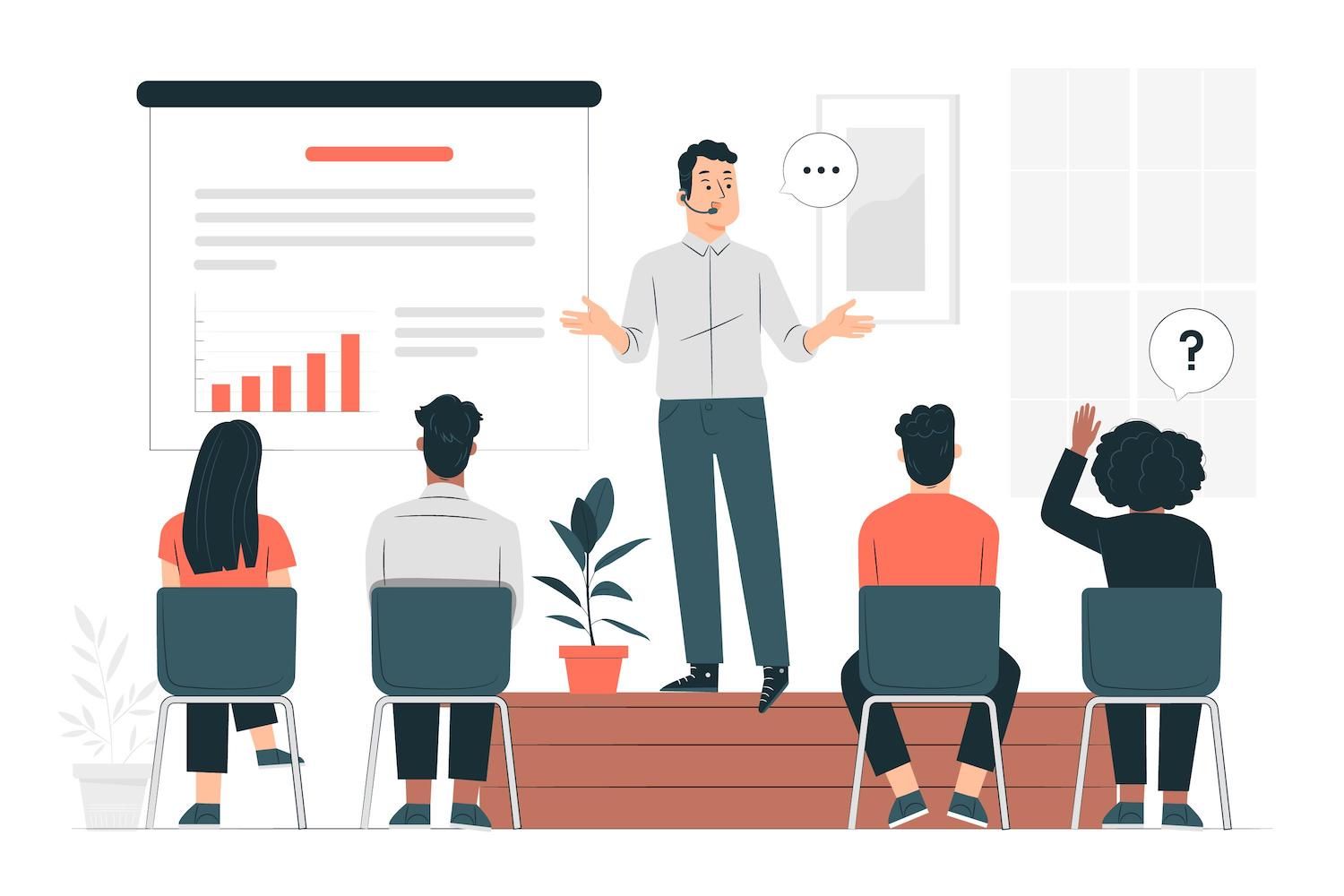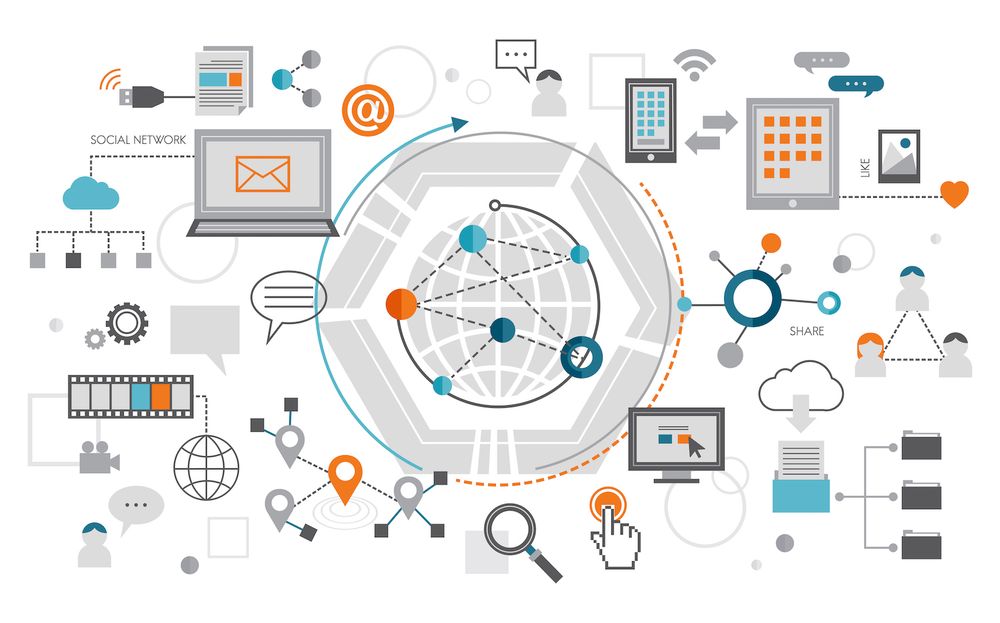Terms

"I was born and raised in Southern Vermont," starts Max Mackson of Maximilian Mackson, LLC. I was a homeschooler until high school, which allowed me to spend time on the computer. I learned HTML, CSS, and JavaScript as the main languages on the internet, and then kept experimenting with other initiatives."
As a young adult, Max went into a theater program. "I learnt to behave professionally. We had a director who was demanding and I'm grateful we had him since he taught me how to never miss a deadline and ensure that you are prepared," he adds. Max's first IT work experience came around the time of this interview. "Between my junior and sophomore year of high school I was working at a country club in town. I was there twice a week to update their website, and it was God terrible! They were using some crazy third-party software that took a half hour to do tasks that using WordPress would take two minutes," the author explains.
Speaking to people face-to-face while solving the technical issues certainly made a difference He continues. "I'm all about personal connection. I get a lot of value out of relationships. During the season at our country club, everything was in high gear all the time. So if the printer in the kitchen went down, I had to run into the kitchen. It was hot and busy everyone was moving all around me. We were "in the zone' immediately!"
Max was fascinated by seeing the effects of his work in attempting to overcome the difficult relationship we have with tech sometimes. "When I was working with others, I would say "Okay, I've just uploaded an update to this computer which I would then ask them to see whether it was helpful to them, or if they were confused. I was able to observe these different sides and learn what people's reactions to technology are. A lot of IT folks will just affirm, "Oh, this is the way things are currently; it's the latest update', and that irritates me. I enjoy working with people."
Max realized that being proficient in tech could be a positive influence on people's lives. During the country club years the reason for his dislike of printers started "They simply don't function when you expect them to work!" he smiles. The majority part of the time was spent fixing printing equipment; and working with computers helped him understand the architecture of systems "I was able to overhaul each of their systems throughout many years. I still do work for them now," he adds.
Striking out by himself
As for a formal education, Max went to Champlain College in northern Vermont but he was taught something different beyond the standard course. "I was one of twelve information technology majors that was really hilarious since, while I was in school it was decided by the school that they would be ending the major! They took us to an area and told us, 'Hey, guys, that's why you'll be able to graduate. But we're not going to provide your degree after this year'!"
Max began working in audio-visual because of his theater background. "That involved more fixing technology as all of the classes relied on computers, projectors, and projection screen," he continues. "When the technology went down and we walked into these full classrooms with people and everyone would stare at us. Then we'd be seated at a table to switch out the projector's bulb!"
"I attended college for only two years; I dropped out due to the fact that I found it to be slow. The web world moves so quickly, that by the time you end with a degree the subject is outdated on the market. The professors who have to keep up with the latest developments and pushing it out to students, it can take a while," Max adds.
Naturally, the rate of development hasn't diminished and in fact, has increased and the speed and purpose of higher education eventually caused Max to starting the company he owns. One reason he left was because his outlook for the prospects was not as clear as that of his college: "They liked to say that they could get the majority of their students jobs right out of college - that's awesome. However, they are extremely focused on making sure that everybody gets into the working environment. I enjoy working with others, but not as a result of that; it wasn't for me."
Thus, Max went out on his own and started looking to find his first client. He'd just attended the course, and the guy who was running the event had requested testimonials. Max remembers: "I sent one in hoping to practice my writing skills. However, in the end, I put 'PS - If my abilities could ever be of use to you, please let me know?' and Max replied: 'Well, what are you able to do?'"
Max took a look at the site and wrote a bulleted list of improvements: "No BS, just straight to the point" and Max got a quick answer: "Text me' as well as a telephone number. "That is how I got the job I wanted. And to this day he's one of my best clients!" Max smiles.
Projects and services
"You are dealing with all these diverse pieces of software that power your the business, yet none of it's talking to one another. I'm the guy who gets that software communicating perfectly," Max says. Max explains how this results in a more powerful single system, which is able to accelerate business growth as well as save energy and time. "I am an integrator and systems architect. Many people even my parents refer to me as"the IT man!" he jokes.
Max Explains that a typical user's tech stack can comprise of 100 parts of software in silos. "You must bring all these things together so that they speak to each with each other. I began working with a couple of clients in Web design, then I started to work on integration on April 20, 2021. one of my clients was looking to run a paid members only community."
Max had been working with the client, who was an influencer in the field of health and wellness and an evangelist, for a while and things were going smoothly. He hadn't had much expertise with memberships, however he already anecdotally knew exactly what the issues would be. "I ended up looking into a variety of membership software providers. I've got a method of looking up diverse lists of what's the top software. I'll correlate them."
Max picks software to provide the best user experience, on both the admin side and from a client side in order to reduce support times for customers in the long run. It is essential to be simple. "I can be in a more complicated environment but I also understand what happens when something is at a point where it's not usable by everyday users. They want to purchase somethingand want to get access to it. It's normal: whenever you sign in to the website, I'd aware of the reaction on their face. I'd begin to explain it and their eyes would simply glare!"
The ways of integration, and the future
"Integrations can be deceptively complex," Max muses. "They are of different kinds and different levels. For a native integration, like with Mailchimp, just click a couple of buttons, and it's approved, then you're ready to go. It's possible to create low-code or no-code integrations, like Zapier's Zaps, and completely custom ground-up solutions where you write everything in the ground up."
"Generally, I play within the non-to low-code sphere, because it's proven to work for my clients. However, for one specific integration, my client wanted to really go into the integration. They needed to include all the capabilities of a native integration, but through Zapier. It took me a dozen different Zaps to have the entire thing wired up and to achieve a natural feel and I still needed to create some custom code."
What made that particular initiative fascinating was the amount of interaction. "The initial day that we started it, we ran 50,000 tasks through it, which is crazy! I had to optimize it a lot for it to be worthwhile. I managed to get it down to just 5000 or less tasks per day, which was pretty high."
The author adds: "That was the first time I had worked with a customer of that scale with Zapier. I've had the pleasure of working on lots of projects over the years, some that were more design-oriented, others which were more technical but this was the standout."
The larger scope of innovation is the driving force behind Max's future. Max says that: "Longer term, I want to develop software for business." He says his thoughts on software are frequently because it's a key element in his professional life and also because so many programs have become worse over time. "It gets slow and bloated; it's not user-friendly anymore. They're constantly pushing out these UI updates that just make it worse. At this point, a lot of people believe that software is a joke!"
He says he's trying to offer a better user experience that is simpler and more intuitive for the end-user. "It's extremely early in the development stage, but I have some interesting concepts. It's probably about six months away, because I tend to work solo most often. I don't like working with agencies: they give an idea to a new, unnamed developer who is then locked up inside a closet! I'm not a fan of that kind of environment and tend to collaborate with individuals only one-on-one."
Max has his thoughts on the latest news with--and gives preferential treatment to--subscribers of his mailing list (which he lovingly refers to as the "#MilianFam"). And as an exclusive offer to new subscribers coming from , he has created an exclusive bonus course and, up to the date of posting, has not been previously offered elsewhere, for any price.
